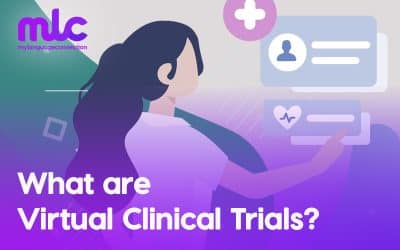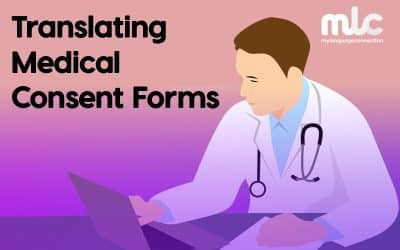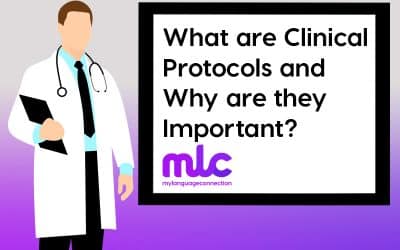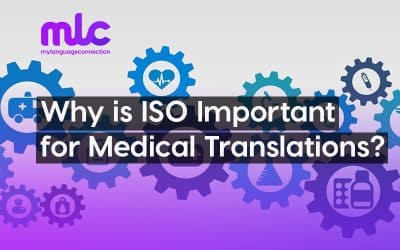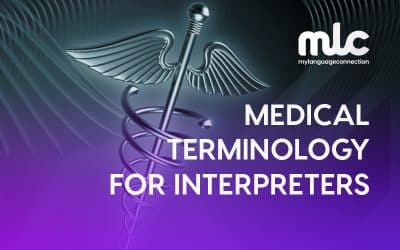
Client Overview
Rocket Medical is a UK-based company that specialises in designing, developing, and manufacturing medical devices for clinical use. The company has a reputation for creating high-quality, innovative products that are used in healthcare facilities worldwide. Rocket Medical’s product range includes a variety of medical devices such as catheters, endoscopes, and biopsy needles.
Working with MLC, we appreciate the real person relationship, ease of ordering and quotation. We would definitely recommend their services.
Requirements & Challenges
Rocket Medical approached our translation agency with a project that required the translation of various documents such as IFUs (Instructions for Use), manuals, and technical specifications into 21 different languages. The company’s goal was to ensure that their products met the requirements of international regulatory bodies and could be sold in markets worldwide.
The challenge was that the translation had to be of the highest quality to ensure accuracy, consistency, and readability across all languages. Rocket Medical’s products are critical to patient safety and the translation had to be error-free to ensure that healthcare professionals worldwide could use their products safely and effectively.
Our Approach & Solution
The dedicated account manager started by conducting a thorough analysis of the project requirements and the client’s needs. We put together a team of experienced linguists, proofreaders, and project managers to oversee the translation project from start to finish.
Our team began by selecting linguists who had experience in the medical industry and were native speakers of the target languages. All MLC linguists are subject to rigorous screening and selection to ensure quality, accuracy, and consistency.
Next, we developed a project plan that included timelines, milestones, and clear communication channels with the client. We assigned a dedicated project manager who was responsible for ensuring that the project ran smoothly, on time, and on budget. The project manager was the main point of contact for the client and liaised with the linguists and proofreaders throughout the project.
Once the translation was complete, our team of expert proofreaders reviewed the documents to ensure that they were free of errors and met the client’s quality standards. The proofreaders checked for consistency, accuracy, readability, and adherence to the client’s brand guidelines.
The Result
Our approach, solution, and expertise allowed Rocket Medical to achieve their goal of providing safe and effective medical devices to healthcare professionals worldwide. By successfully translating their documents into 21 different languages, we enabled Rocket Medical to meet international regulatory requirements with ease, allowing the company to sell their products worldwide. The translations were of the highest quality, ensuring accuracy, consistency, and readability across all languages.
The client was extremely satisfied with the end result, and the project was delivered on time and on budget. We look forward to providing ongoing support and additional services to Rocket Medical as their trusted language partner.
What are Virtual Clinical Trials?
Virtual clinical trials is the new standard of conducting clinical research that leverages the power of technology and social apps. Clinical trials are the cornerstone of the medical industry. It is crucial in the development of new drugs and gathering scientific evidence of their efficacy. This process must be handled with the utmost care and following strict regulations. However, the method of conducting clinical trials has changed rapidly...
What is a Contract Research Organisation (CRO)?
The CRO plays an important role in the management of clinical trials and research. In this guide, you will learn what a contract research organisation does and why they are a must, and where clinical translation comes into play. Contract research organisations, or CROs, are crucial to the success and quality assurance of clinical trials and studies. Whatever the purpose and nature of the study is, they play an important function, some of which...
Translating Medical Consent Forms
Translating medical consent forms is an essential step to make information more accessible to patients, as well as to ensure patient safety and meet regulatory compliance. Accurate and transparent communication is vital in the health and medical field. Any form of miscommunication could put patients’ lives at risk. For this reason, translating medical consent forms must be set to the highest standards to avoid these risks. This move also leans...
What are Clinical Protocols and Why are they Important?
Clinical protocols are set in place to define the appropriate guidelines in the diagnostic treatment and care of patients. The ultimate objective is to improve the overall quality of patient care. A clinical protocol is a must in many healthcare settings. It is known to improve outcomes and safety in the delivery of patient care services. Discover the important role that clinical protocols play and how it can be improved to achieve its...
Why is ISO Important for Medical Translations?
Quality and consistency is a must in the field of medical translation. Getting ISO certified is important to ensure that medical documents and product labels are free of error and are delivered to the highest standards. Medical translation is a specialised service that must adhere to the highest standards. Creating content for medical products and devices is highly regulated since any error or misinformation can lead to patient risk, such as...
Medical Terminology for Interpreters
Medical terminology for interpreters is one of the biggest hurdles that professionals in the field will encounter. This is a comprehensive guide on how to regulate and overcome this issue. Medical interpreters are subject to a superior standard when it comes to dealing with medical terminologies. They need to understand concepts and medical terms as it can play a factor in the health and safety of patients. How Confusing Medical Terms Can...

